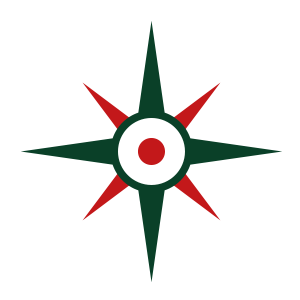ISM News
Update nr. 90
In this ISM News Update:
- Medical first aid and Medical care
- IMO circular about the definite introduction of STCW Manila Amendments
- Non-ISPS statement
- Polar Code
- Code of Safe Working Practices for Merchant Seafarers
- New link to Dutch Maritime law
Medical first aid and Medical care
Since the introduction of the new crew legislation, there still appears to be confusion about the courses/certificates Medical First Aid and Medical Care. Both courses must be individually refreshed every 5 years. The Medical First Aid training lasts two days, the Medical Care training three days. The Medical Care training DOES NOT cover the Medical First Aid training.
Officers with limited certification can often suffice with the training of Medical First Aid. This will depend on the function and the trading area.
The latest version of the “Gids uitvoering wet zeevarenden (nr. 3.3)” provides further explanation of all training and can be downloaded from our website.
http://www.roodbovengroen.com/website/managedMedia/mediaItem/275.pdf
IMO circular about the definite introduction of STCW Manila Amendments
The IMO issued a circular in which Port State Surveyors and Class are advised to show lenience with any STCW documents (Certificate of Competence) which are not compliant yet during the 1st half of 2017.
This is because not all the governments have fully implemented the STCW Manila Amendments as per 1-1-2017. Seafarers are advised to ensure, where appropriate, that all required training certificates are in order and to keep the IMO circular ready in case of an inspection.
The IMO circular can be downloaded from our website:
http://www.roodbovengroen.com/website/managedMedia/mediaItem/328.pdf
Non-ISPS statement
The new non-ISPS statement issued by ILT for the sailing fleet, valid until 1-1-2018, can be downloaded website: http://www.roodbovengroen.com/website/managedMedia/mediaItem/324.pdf
Polar Code
As of 1-1-2017 the polar code came into force for ships in Polar Regions, including Greenland and Spitsbergen. The Polar Code applies to all ships with a Passenger Ship Safety Certificate or a Cargo Ship Safety Certificate, so generally ships of 500 GT or more and ships carrying more than 12 passengers.
The Polar Code contains a number of requirements in terms of safety and prevention of pollution. These requirements are mainly reflected in the expansion of (safety) equipment, training of officers and construction requirements.
An overview of the main items and the full text of the polar code can be downloaded from our website:
http://www.roodbovengroen.com/website/managedMedia/mediaItem/320.pdf
http://www.roodbovengroen.com/website/managedMedia/mediaItem/322.pdf
Code of Safe Working Practices for Merchant Seafarers
There is a new version of the Code of Safe Working Practices. This can be downloaded from our website: http://www.roodbovengroen.com/website/managedMedia/mediaItem/326.pdf
This latest version includes amendments from October 2016 with the following components:
Entry into enclosed spaces;
Operation of watertight doors;
Scaffolding;
Means of access;
Mooring especially small vessels;
Handling of chemicals and other substances that can be hazardous to health including health surveillance.
New link to Dutch Maritime law
To replace EasyRules ILT has provided a link to Dutch national and international maritime law: namely the Netherlands Regulatory Framework (NeRF) https://puc.overheid.nl/nsi/ . Momentarily all hands are on deck to provide complete and up-to-date information. Questions, suggestions and remarks on the content are welcome at NeRF-Maritime@ilent.nl .



